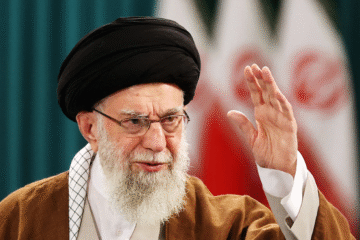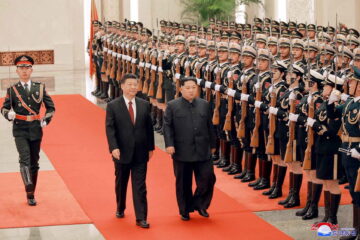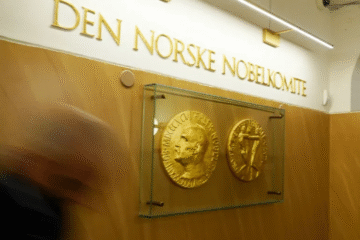Should Politicians Listen to PUBLIC OPINION?
What you want to understand… 🤔
- Why does public opinion matter in democracy?
- What are the risks of basing decisions on public opinion?
- Under which conditions does public opinion should be taken into account?
- How can public opinion be better reckoned with by public decision-makers?
The first French encyclopaedia written in 1765 by philosophers of the Enlightenment defines opinion as an intermediary stage between ignorance and knowledge. It is a judgement built on prejudices and beliefs that is made of uncertainty and doubt (Boucher d’Argis, 1765). Public opinion refers therefore to the “aggregation of the views of individuals in society” and more broadly speaking to the collective will of the people. By spreading knowledge, philosophers of the Enlightenment endeavoured to create enlightened citizens whose judgements would be rooted into facts and rationality. However, despite progress regarding education and information sharing, there is and will always be information asymmetries between decision makers and average citizens. In our democracies, we expect politicians to listen to public opinion as they are office holders or seekers who are elected to represent citizens and their interest in government or in law-making institutions. However, public opinion being based on partial access to information and beliefs, politicians may find themselves knowing better than their voters what is good for them. Furthermore the volatile nature of public opinion makes it even more difficult for politicians to follow it when they want to design long-term policies.
In this essay we will see that public opinion does matter in democracy (I) even though it should not be the only indicator for politicians when making decisions (II). Eventually we will examine under which conditions public opinion should always be taken into account by politicians (III).
I. Public opinion matters in democracy
First of all, in our Western democracies, politicians should listen to public opinion as their legitimacy comes from the mandate their fellow citizens gave them during elections.
A. Politicians should be responsive to voters
Most of our Western societies rely on an indirect democratic system where politicians are elected by citizens to represent them. If politicians have an imperative mandate they have to represent their voters, not necessarily the public interest, and do exactly what they have been mandated to do. However, nowadays, democracies rely mainly on representative mandates that give more leeway for politicians to act according to what they think is best for society. Nonetheless, it doesn’t mean that politicians don’t listen to public opinion once elected. In fact, according to Montesquieu, in representative democracies citizens express their sovereignty through elected officials. The latter are considered as tools that are supposed to devote themselves entirely to their democratic function, be ideally less ignorant than the rest of the people and have a sense of duty and responsibility (Montesquieu, 1748). Besides, the Universal Declaration of Human Rights (1948) states that “the will of the people shall be the basis of the authority of government”. Therefore politicians have to listen to public opinion in order to assume a representative role in a democracy and design policies that are legitimate in the public eye. Besides, politicians have to listen to public opinion because they are held accountable by their fellow citizens. Elections are crucial in assessing whether a politician’s mandate was aligned with what electors wanted. However, many other factors influence an election outcome. That’s why some tools exist to hold politicians accountable of what they are doing. For instance, in the 19 US states, citizens can resort to recall elections, after gathering enough signatures for a petition, in order to remove an elected official from office. Likewise in Latvia, insofar as at least 10% of the electors want to initiate a recall referendum, all the members of the Saiema (parliament) can be removed.
B. Heeding and understanding public opinion is vital for democracy
Furthermore, politicians’ perception of public opinion is often wrong which may lead them to undertake certain policies without knowing whether or not they enjoy popular support. According to Steven Kull, politicians often misunderstand what their fellow citizens actually want. For instance, while 76% of the US public support US participation in the International Criminal Court, only 30% of US leaders surveyed knew that this figure was more than 50%. It shows that a large majority of leaders are ignorant of the public opinion when making decisions, while they claim to represent their fellow citizens who have given them a democratic mandate. This poor perception of the public opinion can be harmful for people’s trust in democracy and for policy-makers’ legitimacy. Voters have to be reassured in the idea that politicians act on their behalf and not independently from the popular will. That’s why representatives should listen to public opinion in order not to disconnect themselves from people’s actual views.
II. Problems with listening to public opinion
Even though politicians should listen to public opinion, it is not as straightforward as one may think. As a matter of fact, listening to public opinion has many downsides: public opinion is highly volatile, doesn’t help to make decisions and is easily influenced.
A. Public opinion is highly volatile
It is difficult for politicians to follow public opinion as it is mercurial and thus cannot be trusted. In fact, according to Douglas Hurd in 1993, then British foreign secretary, had the British government followed the public opinion about the UK’s EU membership, the latter “would have been in and out of the EU several times in the last 20 years”. Moreover, as shown in 1995 by Christopher Wlezien, the public acts as a thermostat: there is a negative correlation between changes in public preferences and government spending decisions. In fact, policies are undertaken in a given area and enjoy popular support only until citizens realise that there are other important issues to focus on (Wlezien, 1995). This thermostatic model of politics allows us to understand that public opinion is volatile and always dissatisfied with public spending. Heeding public opinion at a given moment is of no help for politicians who endeavour to undertake long-term policies that need continuity from their design to their implementation. If they were to follow public opinion, they would never be able to bring their policies to a successful conclusion as they would have to abandon them along the way in order to align with public preferences.
B. Public opinion doesn’t help make clear decisions
Politicians should not base their policies on opinion polls since they are poor indicator of what politicians should do (Weissberg, 2001). First of all, opinion polls report people’s wishes regardless of their attainability. Besides, they don’t take account of potential trade-offs with other issues. Indeed politicians have a limited budget to work with and therefore have to make choices when allocated resources to state programs. They have to decrease government spending for some ministers in order to increase them for others. We can say that polls lure people into believing that they can get “something for nothing” (Weissberg, 2001:5). Moreover, polls don’t ask for a precise amount of money when asking whether government should spend more or less in a specific field. Thus polls don’t allow politicians to precisely grasp what citizens want. They only give a vague picture of what the public opinion looks like, while politicians need precise and reliable information and figures in order to make informed and rational decisions. Furthermore, politicians shouldn’t listen to opinion polls since the way citizens view an issue is not always aligned with factual evidence. For instance, according to Steven Kull, in 2016 while only 4.8% of the British population was Muslim, British people believed that it was 15%. Discrepancies between public perception and reality are found on many issues, with inequalities across countries.
C. The influence of the media
It is also worth noting that the public opinion can be easily influenced. In fact, people tend to have a confirmation bias which lead to a correlation between what people think others think and what people think. Steven Kull argues that domestic public opinion can be influenced by the perception we have of foreign public opinion. For example, in the context the war in Afghanistan, 37% of Americans wanted NATO operations to continue, and 30% thought that most Afghans wanted the NATO operations to end. It turned out that “among those that think the Afghan people want NATO to stay, almost all thought they should stay”. Therefore, people’s opinion is shaped by their perception of what others think. This perception can be influenced by the way information comes to citizens’ attention, hence the power of the media in moulding public opinion. Not only media present facts, but also interpretations of facts and editorial opinions. Besides, not all newspapers and journalist agencies are independent. Actually most of them are part of conglomerates directed by few persons. For instance, in France, the businessman Vincent Bolloré has a media empire made up of radios like Europe 1, TV channels like Canal+ and CNews, magazines like Paris Match and publishing agencies like Larousse and Hatier. Many worry as it jeopardises the diversity of information and the right of people to make their own judgement based on impartial information. In fact, according to a Le Monde’s article, Vincent Bolloré uses his media influence to promote far-right ideas and Eric Zemmour as a candidate for the 2022 French presidential elections. Another example can be found in the case of the media mogul Rupert Murdoch. Politicians can thus wonder whether the public opinion that they listen to actually comes from citizens’ unbiased and rational judgement of their personal situation. From what we have just discussed, it seems reasonable for politicians not to blindly follow what the public opinion says.
III. Making public opinion count
We can now wonder how we can overcome the aforementioned difficulties. Under which conditions politicians should have no other choice but to listen to public opinion? How can citizens make their interests heard by politicians while circumventing issues related to public opinion polls?
A. Public opinion does matter for basic rights and freedoms, and national security
As we saw, people don’t possess enough knowledge to deal with technical issues and are thus of no help for politicians. Nonetheless it is primordial in democracy that they take account of citizens’ claims regarding their basic rights and freedoms as well as the overall security provided by their State. In fact, according to Max Weber, a State has a monopoly on violence (Weber, 1919). This legitimate use of force should be used to ensure that citizens who gave up a part of their freedom when agreeing on a social contract, like the one described by Jean-Jacques Rousseau in 1762, can enjoy a certain level of security that they didn’t have in the state of nature. Consequently, politicians should not be indifferent to social phenomena like the #MeToo movement that concern people’s safety. Indeed, it should be a State’s main priority to guarantee human dignity and security so as for citizens to thrive and satisfy the other needs of the Maslow hierarchy of needs (Maslow, 1943).

When citizens deem that the rule of law is not respected, it should be a primary concern for politicians to respond to citizens’ requests either by upholding laws or, if they are targeted, by aligning their own ethics with what is expected from them. They represent their fellow citizens and therefore have to be beyond reproach in the public eye. Therefore, in a democratic state, politicians not only should but have to listen to public opinion when it comes to violations of basic rights and freedoms in order to make sure the rule of law is respected and their fellow citizens feel safe.
B. Improving communication between decision-makers and citizens
I reckon a major problem in the relationship between politicians and public opinion is the lack of explanations behind the results of public opinion polls. This quantitative method of measuring public opinion doesn’t allow identifying the root causes of problems people face. In order to reconnect politicians to the people they serve, I think it is essential to find ways for citizens to communicate directly with their representatives. Thus a qualitative work can be carried out to assess public opinion. Ideally, it would be conducted along with public opinion polls and both of them would have the same weight in the decision-making process. For instance, in France since the Yellow Jacket movement in 2018, registers of grievances and public meetings have been reinstated in town halls so that citizens can voice their discontent. By doing this, we move away from the urge of our era to seek immediate information without nuance. It is important to reconnect representatives to the people they represent in order to prevent the former from having contempt for the latter who don’t have the same knowledge and technical expertise. It will also help citizens better understand the constraints under which politicians work, especially the lack of resources and the inevitable trade-offs they face when making decisions. I believe that setting up direct ways of communication between them will restore faith in democracy and improve citizens’ political engagement. However, bringing more direct democracy wouldn’t address the problems mentioned in this essay. In fact, citizens can be ignorant when it comes to technical decisions and they may not feel concerned by certain issues and thus don’t want to take part in the decision-making process. Moreover, the question of who should be held responsible if things go wrong arises with a more direct democratic system. As a matter of fact, establishing direct lines of communication with politicians contains some limits including the fact that it is only applicable at a local level. Therefore, it implies that information collected on the ground have to be transmitted to the highest decision-makers according to a bottom-up approach.
Conclusion
After explaining that a democratic system relies on politicians’ subordination to their fellow citizens’ will, we understood that in practice it is not as easy as that for politicians to heed public opinion. Indeed the latter is difficult to follow and can be hardly trusted as opinion polls suffer from shortcomings and public opinion can be easily swayed. Eventually we endeavoured to go beyond this opposition between theory and practice. We provided conditions under which politicians have to listen to public opinion namely when citizens consider their security and basic rights and freedoms in jeopardy. We understood that more qualitative methods of public opinion collection can be beneficial both for politicians to better understand citizens’ requests and for citizens to engage more in their country’s political life, thus restoring faith in democracy.
Bibliography
Bacqué, Raphaëlle, and Ariane Chemin. ‘Comment Vincent Bolloré mobilise son empire médiatique pour peser sur la présidentielle’. Le Monde.fr, 16 Nov. 2021. Le Monde, https://www.lemonde.fr/m-le-mag/article/2021/11/16/l-opa-de-vincent-bollore-sur-la-presidentielle_6102316_4500055.html.
Boucher d’Argis, Antoine-Gaspard. ‘Opinion’. L’Encyclopédie, 1st ed., vol. 11, 1765, pp. 506–08, https://fr.wikisource.org/wiki/L%E2%80%99Encyclop%C3%A9die/1re_%C3%A9dition/OPINION.
Carey, Sean D. ‘Public Opinion’. Oxford Reference, https://doi.org/10.1093/oi/authority.20110803100353599.
‘Definition of POLITICIAN’. Merriam-Webster.com, https://www.merriam-webster.com/dictionary/politician.
‘Definition of PUBLIC OPINION’. Merriam-Webster.com, https://www.merriam-webster.com/dictionary/public+opinion.
‘Does Public Opinion Matter? World Attitudes on Global Governance’. Council on Foreign Relations, 4 Dec. 2009, https://www.cfr.org/event/does-public-opinion-matter-world-attitudes-global-governance-0.
Maslow, A. H. A theory of human motivation. Psychological Review, 50(4), 1943 : 370–396. https://doi.org/10.1037/h0054346.
Mcleod, Saul. Maslow’s Hierarchy of Needs. 2007. https://www.simplypsychology.org/maslow.html.
Montesquieu, Charles Louis de Secondat de. De l’esprit des lois. 1748.
Page, Ben. ‘It’s OK for Politicians to Ignore Public Opinion’. The Guardian, 25 Mar. 2013. The Guardian, https://www.theguardian.com/commentisfree/2013/mar/25/opinion-polls-public-opinion-politicians.
‘Perceptions Are Not Reality: What the World Gets Wrong’. Ipsos MORI, 14 Dec. 2016, https://www.ipsos.com/ipsos-mori/en-uk/perceptions-are-not-reality-what-world-gets-wrong.
‘Politician’. Cambridge Dictionary, https://dictionary.cambridge.org/fr/dictionnaire/anglais/politician.
Recall of State Officials, National Conference of State Legislatures (NCSL). https://www.ncsl.org/research/elections-and-campaigns/recall-of-state-officials.aspx.
Rousseau, Jean-Jacques. Du contrat social ou Principes du droit politique et autres écrits du contrat social. Librairie Generale Franca̧ise, 2003.
‘The Universal Declaration of Human Rights – Article 21’. Claiming Human Rights, http://www.claiminghumanrights.org/udhr_article_21.html.
The Rise of the Murdoch Dynasty. www.bbc.co.uk, https://www.bbc.co.uk/iplayer/episodes/m000kxw1/the-rise-of-the-murdoch-dynasty.
Weber, Max. Politics as Vocation. 1919.
Weissberg, Robert. ‘Why Policymakers Should Ignore Public Opinion Polls’. Policy Analysis, no. 402, May 2001, https://www.uvm.edu/~dguber/POLS234/articles/weissberg.pdf.
Wlezien, Christopher. ‘The Public as Thermostat: Dynamics of Preferences for Spending’. American Journal of Political Science, vol. 39, no. 4, Nov. 1995, p. 981. DOI.org (Crossref), https://doi.org/10.2307/2111666.



3 Comments
mkr usdt · 28 February 2023 at 5:15 am
Very nice post. I just stumbled upon your blog and wanted to say that I’ve really enjoyed browsing your blog posts. In any case I’ll be subscribing to your feed and I hope you write again soon!
RUSSIA, a predator in AFRICA – geopol-trotters · 13 May 2023 at 6:50 pm
[…] as to spread its messages across African populations and sway public opinion, Russia resorts to troll farms that set thousands of fake social media accounts (mainly on […]
Can Public Opinion really impact Public Policy? - geopol-trotters · 6 November 2022 at 12:57 pm
[…] aggregation of individuals’ views in society makes up public opinion. In a democracy, this collective will is supposed to be taken into account by politicians when […]